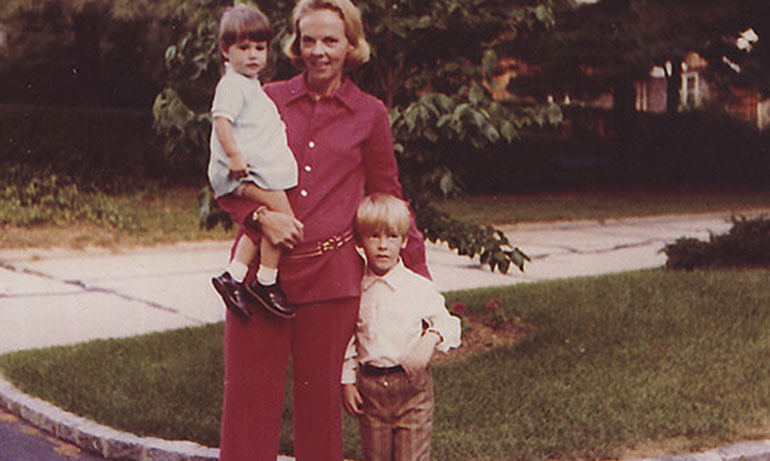When my brother and I were kids, our mother tried to be as open and truthful as possible about our adoptions. On this, as on most things, her instincts were impeccable. There were some unexpected consequences of her honesty, though. One was the image of the Baby Market, which lives to this day in the youth department of my brain.
No, my parents did not purchase us from some weird, black-market, baby warehouse. My idea of the Baby Market was inspired by a picture book. It was the 1960s, and I believe The Chosen Baby, by Valentina P. Wasson, was quite progressive for the time. It showed a lovely young, Caucasian couple adopting a darling and equally Caucasian child. I seem to recall that it discussed the homestudy and waiting periods with child-friendly brevity. It avoided any discussion of why parents might find themselves on either side of an adoption. Infertility and unwanted pregnancies, after all, were not openly discussed at that time. Instead, The Chosen Baby focused on the creation of a new family.
And, with the illogic of the very young, the image I carried away from this book was based not on the illustrations or the story, but from my own imagination. An image that fit what I wanted all of this to mean — my being chosen.
The Baby Market
In my mind, I could see my parents wandering down the aisles of what looked like a typical suburban supermarket. With ruffles. The shelves were adapted to hold bassinets, and happy infants, wrapped in pink or blue blankets, gurgled adorably at the browsing parents-to-be. The lovely couple from the book often made an appearance.
And what fed my young ego was the image of my parents stopping in front of three-week-old me, in my tiny pink basket. I never developed any dialogue for this story. No sudden declaration from Mom or Dad:
“That’s it!”
“She’s the one!”
“Isn’t she the cutest little thing?”
It was more of a moving tableau, in which they smiled knowingly at one another, lifted me gently from my basket, and took me up front to the checkout.
Years later, when I told my mom about the Baby Market, we laughed together. Then she was horrified. She feared she had sent the message that choosing me was something like selecting a nice, ripe melon. I assured her that my fantasy of the Baby Market had been comforting for me while growing up, and it proved how well she taught us that we were wanted, cherished children. Sure, the scenario glossed over all the difficulties of the process, and wantonly ignored the chance of any later family trouble, like that pesky divorce. No matter. That image sustained me as a child, during those years when I always knew I was the only adoptee in every classroom I ever sat in.
A lasting legend
Now, some 30 years later, I can only wonder what my son, Ben, then three, took away from the day we brought his baby brother home. When his classmates begin to discuss the mystery of where babies come from, his contribution ought to be remarkable.
“Oh, well, it’s easy. Your mom picks you up from preschool and says you’re finally going to get a baby brother. You go home, and your moms are frantically calling all your grandparents on their cell phones. Then the social worker comes over to make sure you have a crib and a car seat, and that you’re not just gonna put the baby in a dresser drawer or tie him to the roof rack. Then you all go to the hospital.
“At the hospital, you get to push the elevator buttons. Then you watch cartoons with Mama while Mommy goes through the big double doors. And just as your show is ending, Mommy comes out with a nurse and a big plastic bin on wheels. Mama takes you up close, and you see that a baby is in the bin! Instead of hating him — which you secretly thought you might — all you can think is that he is so tiny, and that babies don’t belong in bins, so you should probably take him home and put him in your old crib.
“And that’s where babies come from: the plastic bin behind the big doors at the hospital. It takes about half an hour.”
Of course, as it was for my childhood self, much of what went on was lost on Ben. He didn’t pick up on the tense undercurrent with the homophobic social worker, who used him as an excuse to keep his two moms out of the nursery.
“I don’t think we can let him in, since he’s not a real brother.”
I refrained from the reply that leapt to mind: No, of course he’s not a real brother, we made him out of pipe cleaners and recycled batteries.
Real moms
I have a serious problem with the word “real” when clueless people use it to classify relationships in adoptive families. How many times have my brother and I been asked whether we know our real moms? With her exceptional ability to defuse situations, Mom taught us several sweetly sarcastic replies:
“You mean the mom who wiped our bottoms when we were babies and who stays up all night with us when were sick?”
“You mean the mom who packs our lunches for school every day, and always tucks a little note inside telling us how much she loves us?”
“Nope. We like this one. We made her out of pipe cleaners and recycled batteries.”
She taught us not to dwell on the why of being given up for adoption — and who coined that magical phrase, by the way? — but to always remember that we were desperately wanted, prayed for, treasured. Chosen.
At the Baby Market, I think.



